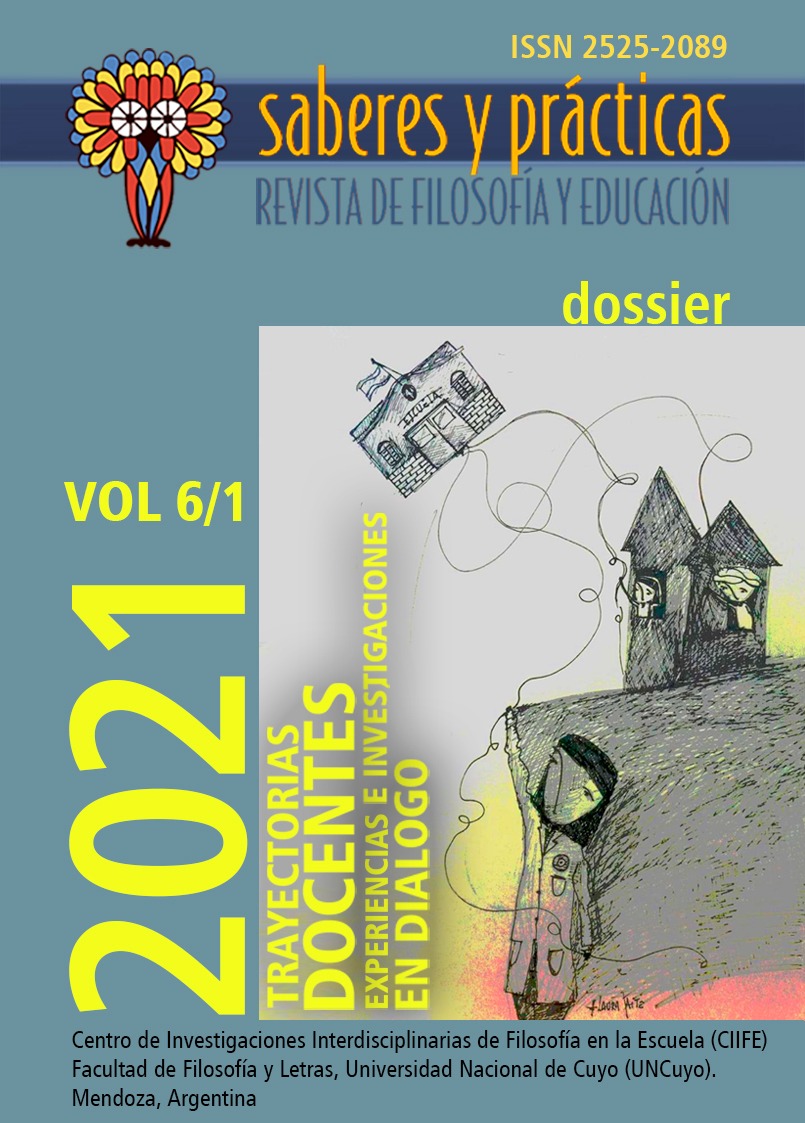Teaching as a philologist - training bases for Portuguese language teachers
DOI:
https://doi.org/10.48162/rev.36.008%20%20Keywords:
Teacher education, Ethos, HumanitiesAbstract
This article is part of the research work entitled Observatory of teacher training: construction of teacher identities in which the aim is to contribute to the collaborative network of research, training and service on public policies for teacher training and development. In this section, we carry out a reflective analysis on the training of teachers in the area of "‹"‹the Portuguese Language for the exercise of the teaching profession to the public of elementary and high school education. The initial objective of the discussions and the sharing of experiences in an international network is to seek innovative experiences in teacher training processes. In the search for more studies and theoretical bases to support the training proposals we understand that the greatest experience of innovation would be to recover the humanistic bases so that, thus, we return to the human concept as the center of all educational activities. Therefore, we address the crisis of specialties in the postmodern world and verify the basic concepts for the construction of the identity of language professionals through analytical interpretations of the pedagogical political projects of teacher training courses in Language and Literature.
Downloads
References
Alfonso Gil, S. et al. (2013). “Perfiles de expectativas académicas en alumnos españoles y portugueses de Enseñanza Superior” En Revista Galego-Portuguesa de Psicoloxía e Educación. Vol. 21, (n.º1) Ano 18º-2013. pp. 125-136.
Bernardes, J. A. C. (2005). Como Abordar a Literatura no Ensino secundário- outros caminhos. Areal Editores.
Bernardes, J. A. C. (2018). “El oficio del Humanista. Retrocesos y Progresos”. En Limite – Revista de Estudios Portugueses y de la Lusofonía. V.12.1- 189-211. pp.189-211.
Contreras, J. (2002). A Autonomia de Professores. Editora Cortez.
Kuhn, T. (1962). The structure of scientific revolutions. The University of Chicago Press.
Maingeneau, D. (2016). “Retorno Crítico sobre o Ethos”. En Baronas, R. Mesti, P.C, e Carreon, R. O. (orgs). Análise do Discurso: entorno da problemática do ethos, do político e de discursos constituintes. Pontes Editores. pp.125-136.
Projeto Pedagógico Letras- Língua Portuguesa. PROEG- UFPA- Faculdade de Ciências da Linguagem. Abaetetuba, 2018.
Projeto Pedagógico Letras- Língua Portuguesa. PROEG- UFPA- Faculdade de Letras – Belém, 2018.
Projeto Pedagógico Letras- Língua Portuguesa. PROEG- UFPA- Faculdade de Letras - EAD– Belém, 2020 (no prelo).
Projeto Pedagógico Letras- Língua Portuguesa. PROEG- UFPA- Faculdade de Letras – Bragança, 2018.
Projeto Pedagógico Letras- Língua Portuguesa. PROEG- UFPA- Faculdade de Letras – Breves, 2018.
Projeto Pedagógico Letras- Língua Portuguesa. PROEG- UFPA- Faculdade de Letras – Cametá, 2007.
Santaella, L. (2018). A Pós-Verdade é Verdadeira ou Falsa? Estação das Letras e Cores.
Shön, D. A. (2000). Educando o Profissional Reflexivo- um novo design para o ensino e a aprendizagem. Artmed.
Silva, V. (2010). As Humanidades, os Estudos Culturais, o Ensino da Literatura e a Política da Língua Portuguesa. Almedina.
Small, Helen (2013). The Value of the Humanities. Oxford: Oxford University Press.
Yurén, T. (2005). Ethos y autoformación en los dispositivos de formación de docentes. En Yurén, T.; Navia, C.; Saenger, C. (eds.) Ethos y autoformación del docente. Análisis de dispositivos de formación de profesores. Pomares. pp. 19-48.
Published
How to Cite
Issue
Section
License
License
This work is licensed under a Creative Commons Attribution-NonCommercial-ShareAlike 2.5 Argentina License.





















